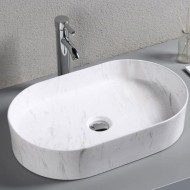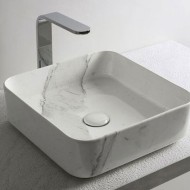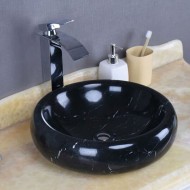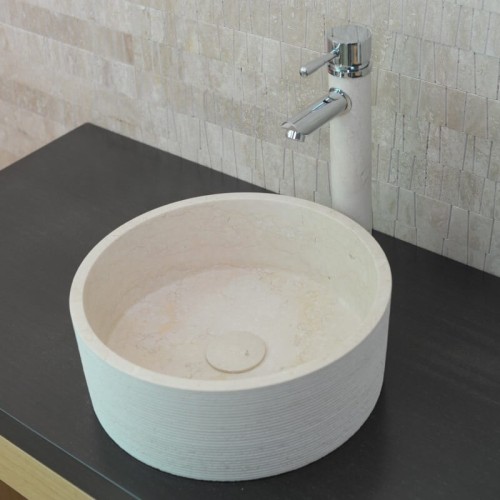
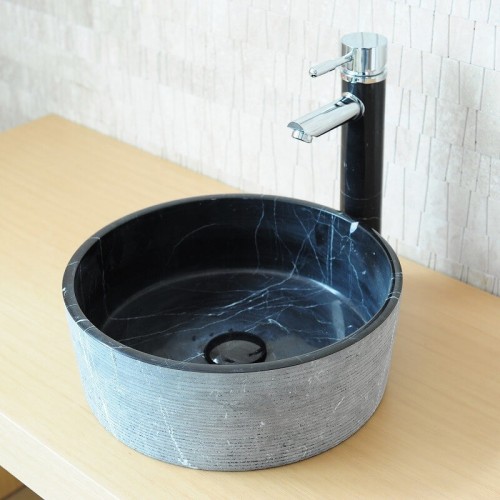
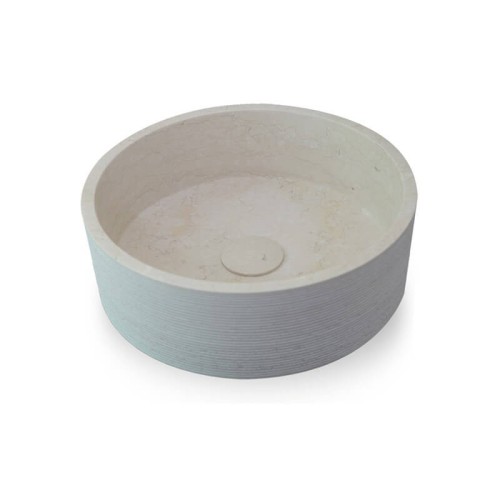
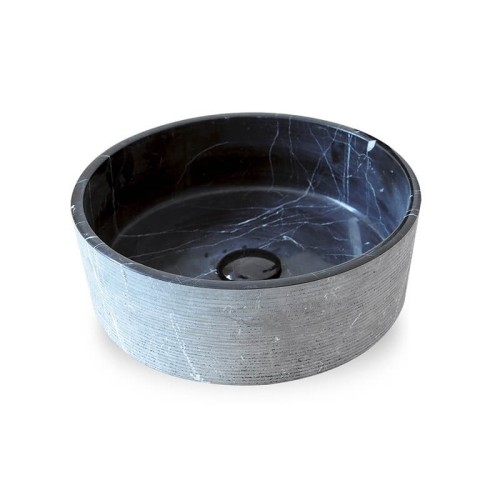






- Out of stock: + Shipping Cost
- Model: EVY003
- MARBLE
- PORCELAIN
- GRANITE
- METAL COLOR
CONTACT US FOR SPECIAL SIZE!
Marble Sink: The Combination of Elegance and Durability
What is a Marble Sink?
What to Consider When Choosing a Marble Sink
Granite Sink: The Perfect Blend of Aesthetic, Durability,
and Style
A granite sink has become an essential feature in
modern kitchens and bathrooms. Made from natural stone, these sinks not only
add a touch of elegance and sophistication to any space but also offer
remarkable durability. In this article, we will explore everything you need to
know about granite sinks, including their benefits, maintenance tips,
selection criteria, and various types available.
What is a Granite Sink and How is it Made?
A granite sink is made from granite stone, typically
crafted through cutting or molding processes. Granite is a highly durable
material known for its resistance to heat, moisture, and impact. These sinks
often feature unique, natural patterns, making each piece one of a kind.
Advantages of a Granite Sink
There are several reasons why people prefer granite sinks:
- Aesthetic
Appeal: The rich, natural patterns and smooth finish of granite sinks
make them visually appealing and add a luxurious feel to any kitchen or
bathroom.
- Durability:
Granite is a hard and durable material, making granite sinks resistant to
scratches, heat, and wear.
- Easy
to Clean: The non-porous surface of granite makes it easy to clean,
with no stains or bacteria buildup.
- Value
Addition: A granite sink enhances the overall aesthetic of a space,
adding a sense of luxury and value.
- Unique
Look: Every granite sink is different due to the natural stone’s
unique patterns, ensuring your sink is one of a kind.
Disadvantages of a Granite Sink
While granite sinks are highly desirable, there are
some drawbacks to consider:
- Maintenance
Needs: Granite sinks require regular sealing to maintain their
non-porous properties and prevent staining.
- Cost:
Granite sinks are generally more expensive than other materials due to the
cost of natural stone.
- Weight:
Granite sinks are heavy, which can make installation and transportation
more challenging.
- Acid
Sensitivity: Although granite is durable, acidic substances like lemon
juice or vinegar can cause damage to its surface over time, so it's
important to use the right cleaning products.
Types of Granite Sinks
Granite sinks come in a variety of shapes and styles,
suitable for different kitchen and bathroom designs. Some of the most popular
types include:
- Round
Granite Sink: Often used in smaller spaces or traditional designs,
offering a classic look.
- Rectangular
Granite Sink: Common in modern kitchens, these sinks are sleek and
spacious.
- Oval
Granite Sink: Known for their soft, flowing lines, these sinks are
versatile and work well with many styles.
- Undermount
Granite Sink: Installed under the countertop, providing a seamless,
minimalist appearance.
- Pedestal
Granite Sink: This type of sink is freestanding and often used in
large, luxurious bathrooms.
Factors to Consider When Choosing a Granite Sink
When selecting a granite sink, consider the
following:
- Size:
Choose a sink that suits the size of your kitchen or bathroom, ensuring
that it complements the space and meets your needs.
- Color:
Granite sinks come in various shades, from deep blacks to light grays.
Choose a color that matches your décor.
- Surface
Finish: Look for a granite sink with a polished or honed finish to
prevent staining and damage.
- Installation
Method: Ensure that the sink’s installation method, whether undermount
or drop-in, fits with your countertop and kitchen or bathroom design.
- Maintenance:
Some granite sinks require more maintenance than others, so consider how
much upkeep you’re willing to invest in.
How to Clean a Granite Sink
Maintaining the appearance and durability of your granite
sink is simple with the right care:
- Regular
Cleaning: Use warm water and a soft cloth for regular cleaning. Avoid
abrasive pads that may scratch the surface.
- Granite
Cleaner: Use non-acidic, pH-balanced cleaners designed for granite to
keep the sink looking pristine.
- Avoid
Harsh Chemicals: Avoid cleaning products with acidic ingredients, as
they can damage the granite surface.
- Sealing:
Granite sinks should be sealed regularly to protect them from stains and
ensure their longevity.
Granite Sink Prices
The price of a granite sink varies depending on the
quality of the stone, the size of the sink, and the craftsmanship. Generally,
granite sinks range from $200 to $1,000 or more. Custom-designed or handcrafted
sinks may cost even more.
The Aesthetic Value of a Granite Sink
Granite’s natural patterns and rich colors add an element of
luxury to any kitchen or bathroom. A granite sink not only serves a
functional purpose but also enhances the visual appeal of the space, making it
feel more sophisticated and high-end.
Granite Sink Buying Guide
- Quality
Matters: Look for high-quality granite sinks that are durable and
long-lasting.
- Balance
Aesthetic and Functionality: Choose a sink that fits both your design
preferences and practical needs.
- Choose
Trusted Sellers: Buy from reputable dealers to ensure the authenticity
and quality of the granite.
Conclusion: The Luxury and Durability of a Granite Sink
In conclusion, a granite sink is more than just a functional item in your kitchen or bathroom; it is a piece of natural art that combines strength and beauty. With its durability, easy maintenance, and unique aesthetic, a granite sink is an excellent investment that will stand the test of time. Whether you're remodeling your kitchen or updating your bathroom, a granite sink offers the perfect combination of style and performance.
















